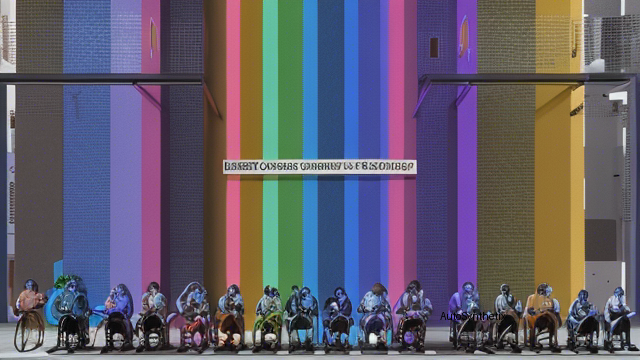In today's interconnected world, the power of social media cannot be underestimated – its ability to foster relationships, share knowledge, and amplify voices transcends traditional boundaries. However, one often overlooked segment of society facing significant hurdles when navigating these online spaces are people living with traumatic brain injuries (TBIs). This poignant reality prompted researchers Yaxin Hu et al., from leading institutions across disciplines, to develop a groundbreaking solution known as the 'Social Media Accessibility and Rehabilitation Toolkit,' abbreviated as SMART-TBI. Their pioneering project aims at bridging the gap between those suffering from moderate to severe TBIs and their much-coveted inclusion within the realm of modern digital discourse.
The pervasive impact of TBIs stems primarily from the myriad cognitive impairments they bring forth, encompassing deficiencies in memory retention, problem solving, decision making, executive functioning, and more significantly, compromised linguistic abilities. As such, the everyday act of posting, commenting, sharing becomes increasingly challenging tasks laden with frustration rather than enjoyment. Consequently, addressing these obstacles head-on became paramount, paving the way for the conception of SMART-TBI.
This comprehensive initiative offers a diverse arsenal of tools tailor-made to cater to the unique requirements of persons grappling with TBIs. Five distinct aids constitute the core elements of SMART-TBI, namely Writing Aid, Interpretation Aid, Filter Mode, Focus Mode, and Facebook Customization. Each carefully crafted feature intently focuses on mitigating specific impediments commonly experienced by TBI patients while interacting online. For instance, the 'Writing Aid' assists in composing thoughtful posts, whereas the 'Interpretation Aid' eases comprehension during consumption of others' communications. Likewise, 'Focus Mode' streamlines visual overload commonplace in highly cluttered feeds, ensuring a less overwhelming experience for the user. Lastly, 'Facebook Customizations' allows individualized settings adjustable according to personal preferences, further enhancing autonomy amidst a technology-driven platform.
To ensure optimal efficacy, the research team meticulously solicited feedback from no fewer than thirteen key stakeholders comprising actual end-users struggling with various degrees of TBIs alongside seasoned professionals specializing in TBI rehabilitative care. Collectively, these evaluations yielded rich insights into the strengths inherent in the proposed system along with crucial room for refinement. Notably, respondents emphasized the necessity for instilling feelings of emotional security, maintaining stringent data confidentiality protocols, striking a delicate balance between commercial interests vis-à-vis disability accommodations, whilst still acknowledging skepticism towards artificial intelligence infused functionalities.
As humanity continues marching forward into an era heavily reliant upon virtual connectivity, initiatives like SMART-TBI stand testament to our collective responsibility in fostering inclusive environments where every voice finds ample representation irrespective of circumstance. By breaking down seemingly insurmountable technological barriers confronting individuals dealing with life altering conditions such as TBIs, innovators like Hu et al. have undoubtedly contributed immensely toward creating a better tomorrow, imbued with empathy, understanding, and unwavering commitment to inclusiveness.
References: Hu, Yaxin et al. "SMART-TBI: Design and Evaluation of the Social Media Accessibility and Rehabilitation Toolkit for Users with Traumatic Brain Injury." Preprint at ArXiv (2024). <https://doi.org/10.48550/arxiv.2408.09683> Arrival date: August 20th, 2024.<ofai=ofai&url=https%3A%2F%2Farxiv.org...%2Fabs%2F2408.09683v1>
Source arXiv: http://arxiv.org/abs/2408.09683v1
